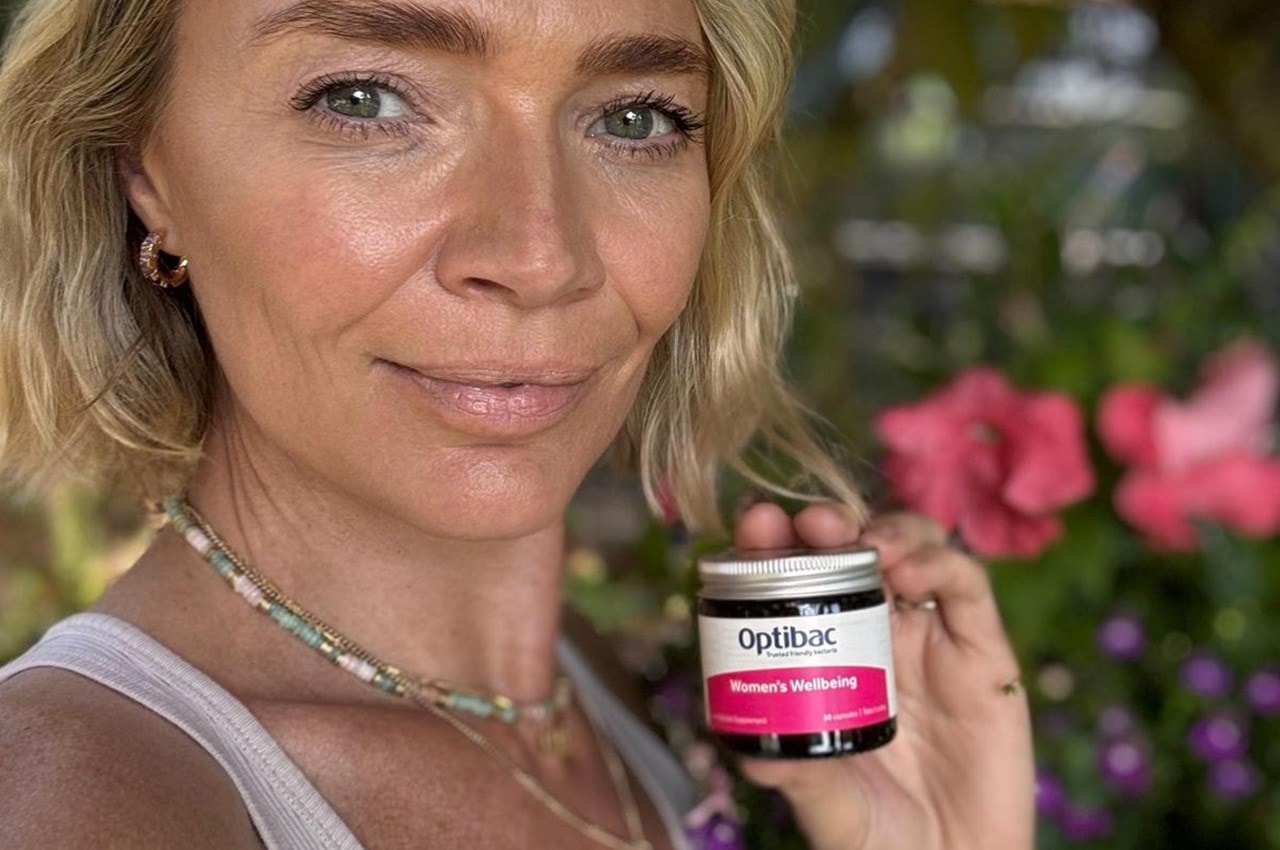- About Us
-
Help
Free 1:1 supplement advice
Not sure which supplement is right for you? Book a free, 15 minute telephone call with one of our nutritional experts.
Book your free consultationGet in touch (Mon to Fri, 9am - 5pm)
Customer Service: +44 (0) 1264 339 770
Order Enquiries: +44 (0) 1264 363 193
Contact us - Stockists
You're away from FREE UK delivery Free UK delivery (applied at checkout) on orders over £10.00
You have qualified for Free UK delivery
The Women's Wellbeing Report
Tired, stressed and invisible: The hidden toll on women's health revealed
- Women carry the load, with half (49%) of British women saying the bulk of 'invisible labour' falls to them
- A third (32%) of UK women at breaking point, feeling constantly stressed or on the verge of not coping
- Supermodel and TV star, Jodie Kidd, helps to shine a light on the silent health crisis with new Optibac Women’s Wellbeing report
British women are running on empty, with new research revealing that they’re overworked, overtired and overwhelmed - and it's having a significant impact on their health.
A national study, commissioned by Optibac to mark the launch of their new Optibac Women’s Wellbeing supplement, has revealed the full scale of the pressures facing women across the UK.
The gender imbalance of the ‘invisible’ workload
The number of men and women in work is closer than ever, with a majority of men (73%) and women (71%) in paid work. Yet, it’s the unpaid load that paints a different picture.
The majority of women work full time, yet 14% still spend up to 20 hours per week on domestic tasks and household responsibilities such as; cooking, cleaning, shopping and admin versus only 9% of men.
Nearly half (49%) of British women say the bulk of ‘invisible labour’ - things like planning meals, managing the family schedule (e.g. children's activities and clubs, school admin, family trips) and remembering birthdays - falls to them all of the time. Just 1 in 3 (36%) men say the same.
With this cumulative mental and physical load, it’s perhaps no surprise that nearly a third (32%) of women admit to feeling constantly stressed or on the verge of not coping.
State of the nation’s sleep habits, with women losing a full night’s sleep per week.
Despite doing more, women are sleeping less, with on average British women get just six hours of sleep per night (29%) compared to men who average 7 hours sleep (30%). Worryingly, the NHS advises women should get at least 7 hours sleep per night, yet the data shows on average women are losing a full night's sleep per week.
Women are more likely to dismiss health concerns
The research also found women are shouldering a higher burden of health concerns, with more than half (52%) report experiencing anxiety, while 2 in 5 (41%) struggle with brain fog and difficulty concentrating.
Digestive issues; including bloating, irregularity and IBS are reported by 29%, with 22% citing skin issues and breakouts and 1 in 5 (21%) reporting hormonal imbalances.
Despite this, women are more likely to dismiss their own health concerns, 69% say they’ve downplayed symptoms due to feeling too busy - compared to just 60% of men.
And worryingly, almost half (49%) of women believe men are more likely to be taken seriously when raising a health issue, yet 69% of men don’t believe that’s true.

Supermodel, TV star and Women’s Wellbeing advocate, Jodie Kidd
“These statistics help scratch the surface of what it’s really like to be a woman today with so many things to juggle. As a mum, fiancée, daughter, sister, carer, business owner and more - there just aren’t enough hours in the day to do it all.”
“And often, it’s those invisible tasks - the school admin, the planning, the taking care of everyone around you - that are the hardest work of all. It’s another layer of mental load.”
The Women’s Wellbeing report further reveals that more than half (55%) of women say they feel guilty when they do take time for themselves, while nearly 2 in 5 (39%) men say they ‘never’ feel guilty.
With a combination of work, home and family, and societal pressures, it’s perhaps no surprise that more than half (58%) of British women fantasise about quitting or pausing work and family responsibilities due to burnout compared to 45% of men.
Jodie continues: “It feels like an important time to be talking about the hidden toll on women’s health and the findings of Optibac’s report, after all we’re only getting busier.”
“And this is why I’m excited about this new supplement Women’s Wellbeing and the difference it can make to women’s lives.”
The Invisible Load
“Our research reveals a stark reality and while it’s fantastic to see women winning in the work place, in 2025 they are under immense pressure, often expected to juggle careers, family, and home life while making it all look effortless.”
“As a result, many are running on empty, with little time or energy to care for themselves.”
“That’s why we developed Women’s Wellbeing - one supplement to support energy, mind, immunity, skin, hormones, and the gut microbiome. It’s a multitasking combination of friendly bacteria plus vitamins for the stresses of daily life.”
Kate Hennessy, Science & Innovation at Optibac
Meet Women's WellbeingThe Women’s Wellbeing Report was commissioned by Optibac to mark the launch of new supplement Women’s Wellbeing and shine a light on the invisible health crisis facing today’s increasingly busy women. Survey of 2,006 UK adults carried out in June 2025 by Research Without Barriers. All research conducted adheres to the MRS Codes of Conduct (2023) in the UK and ICC/ESOMAR World Research Guidelines.
.png?lang=en-GB)
